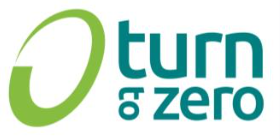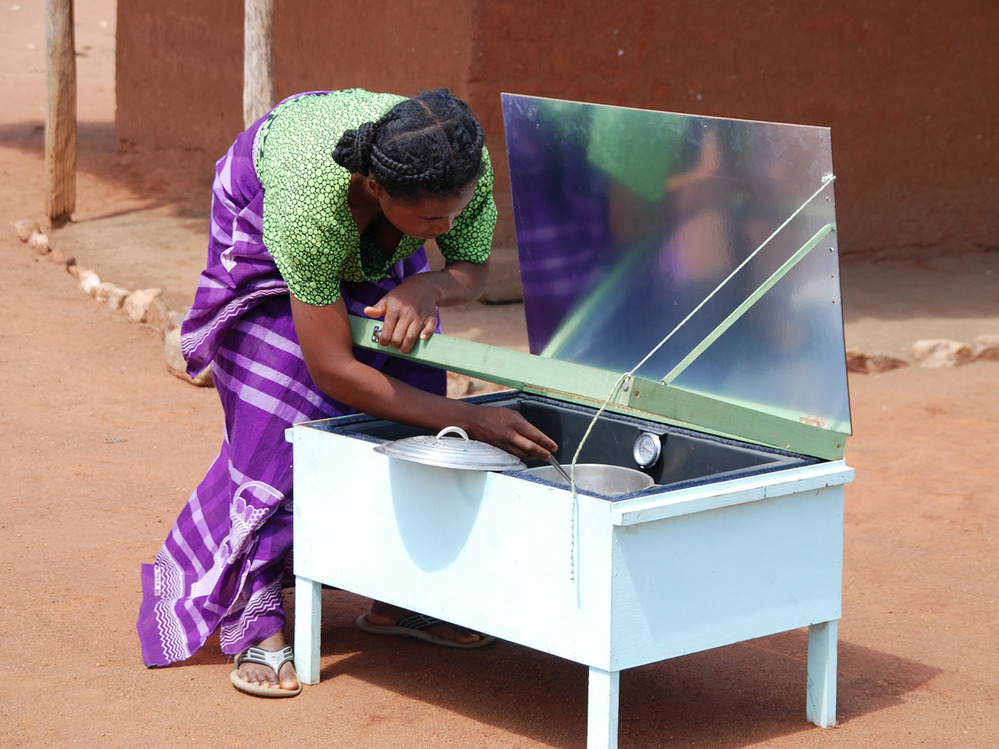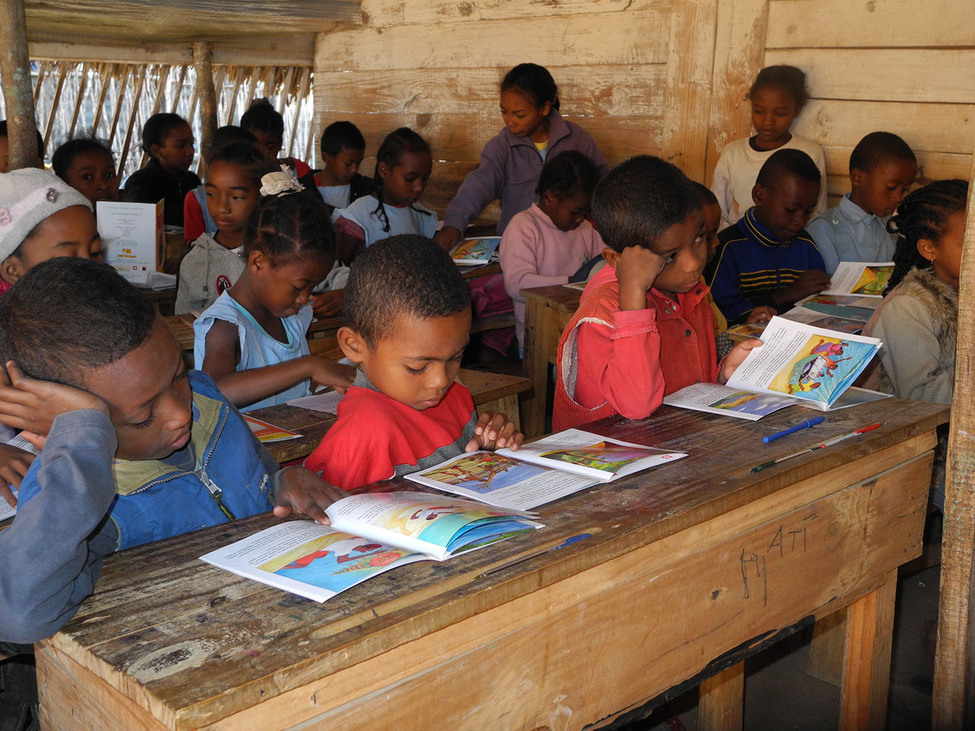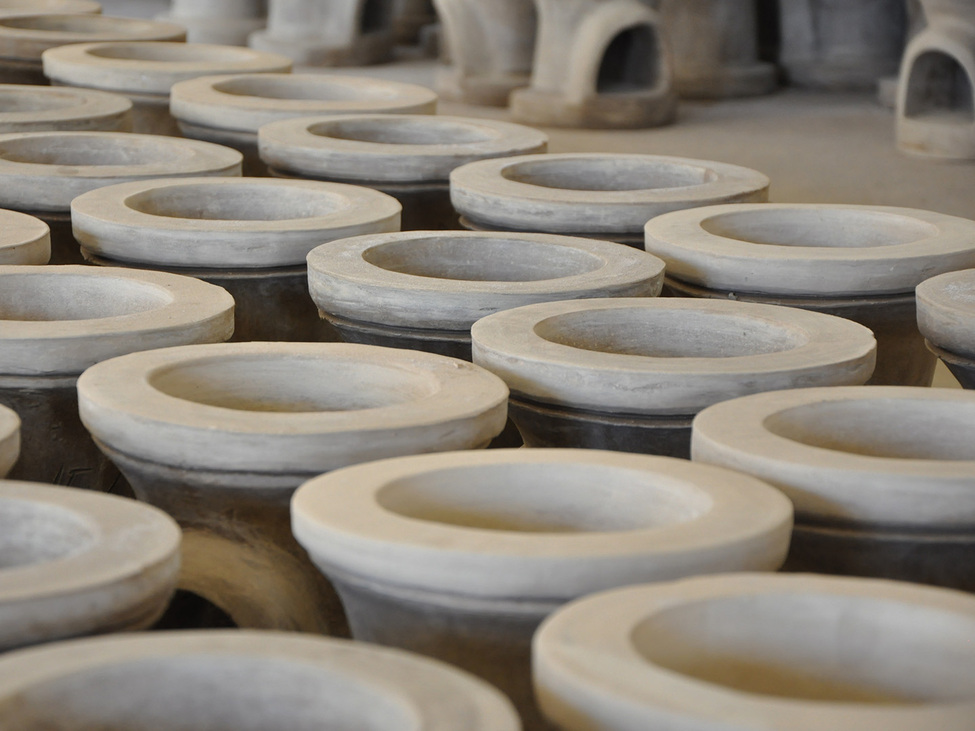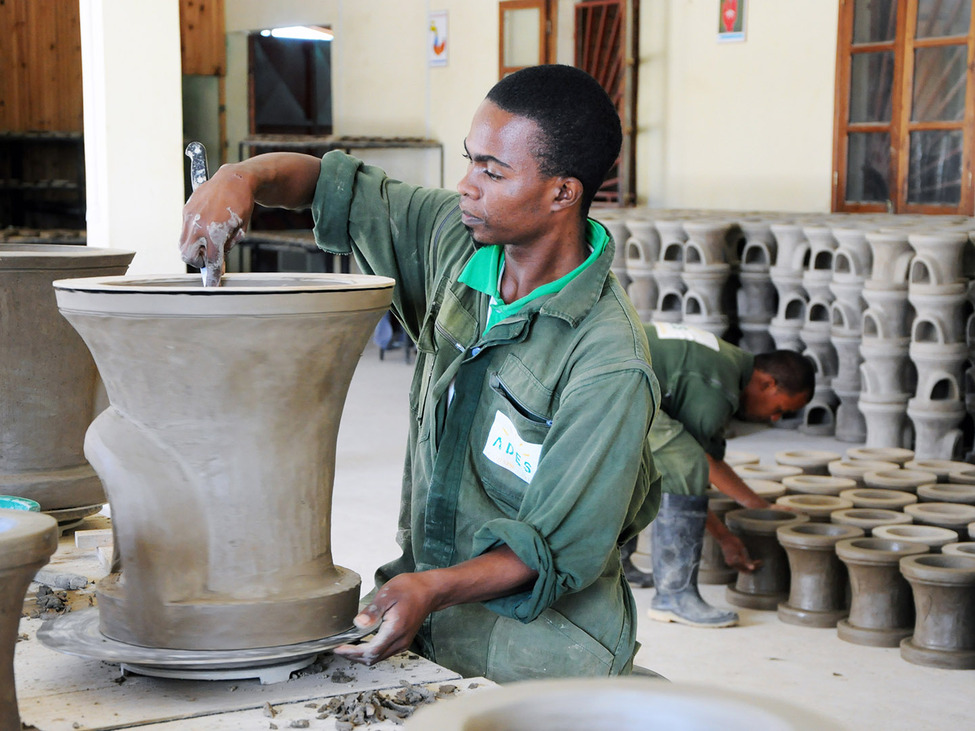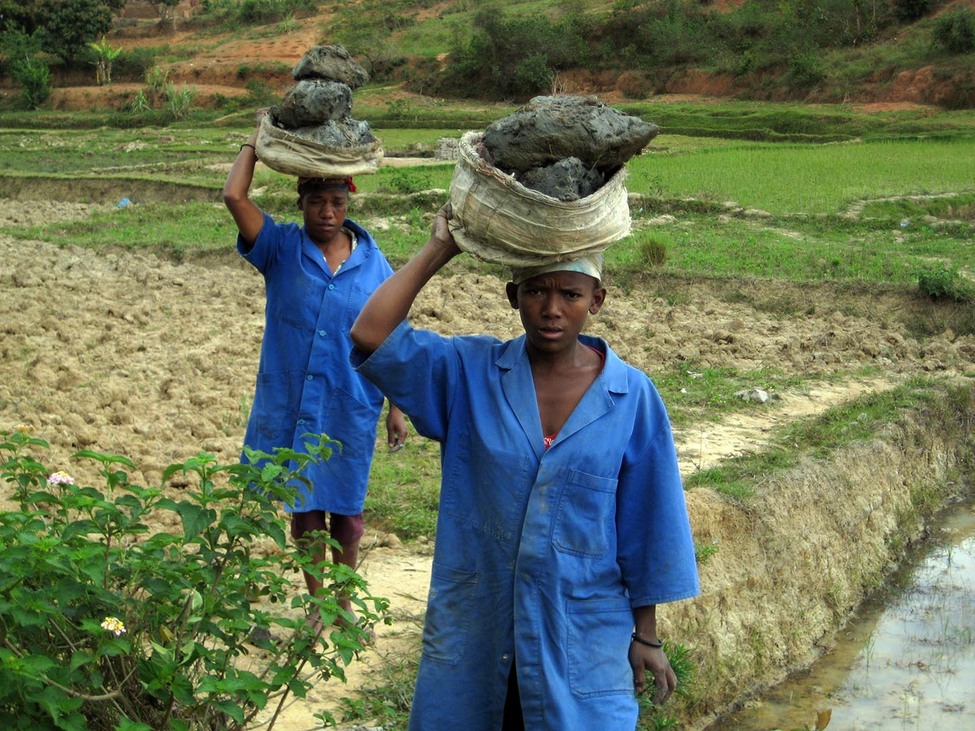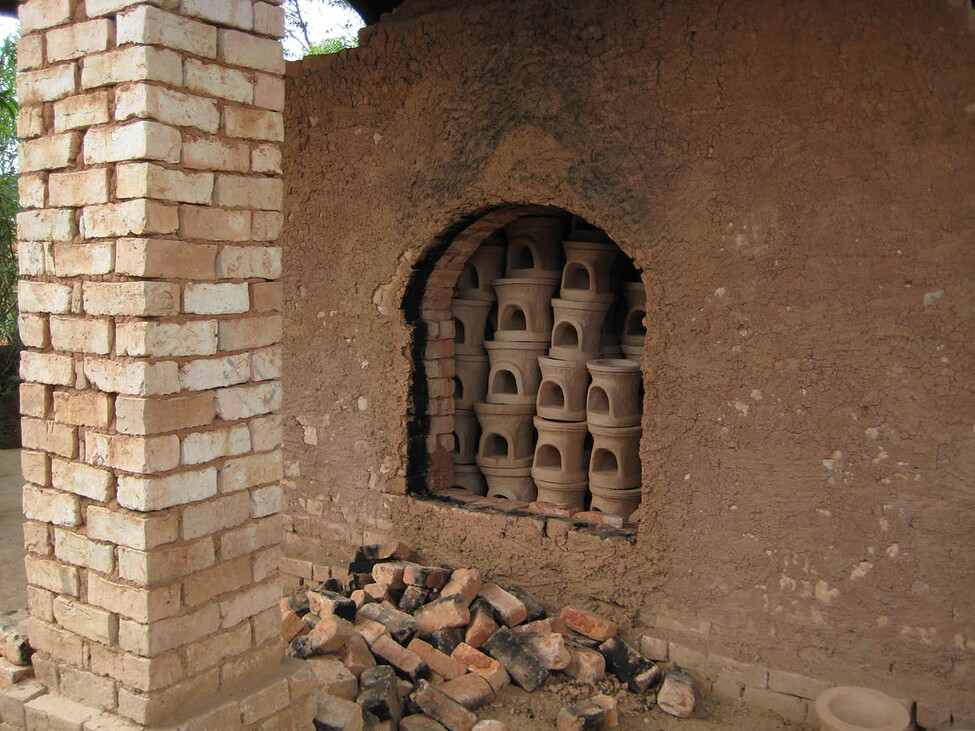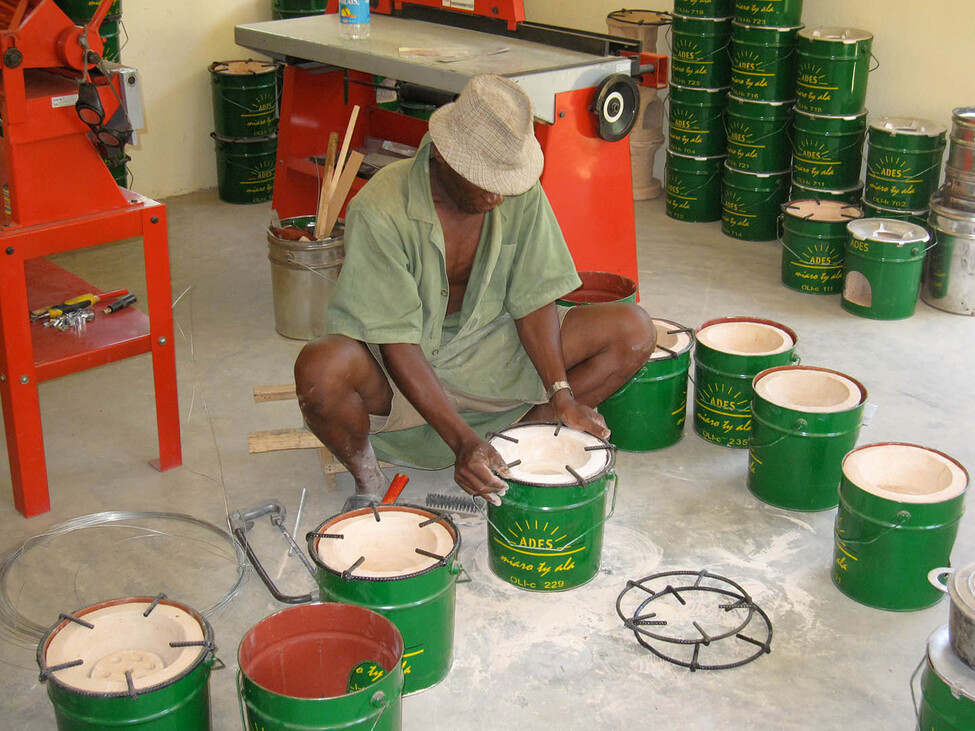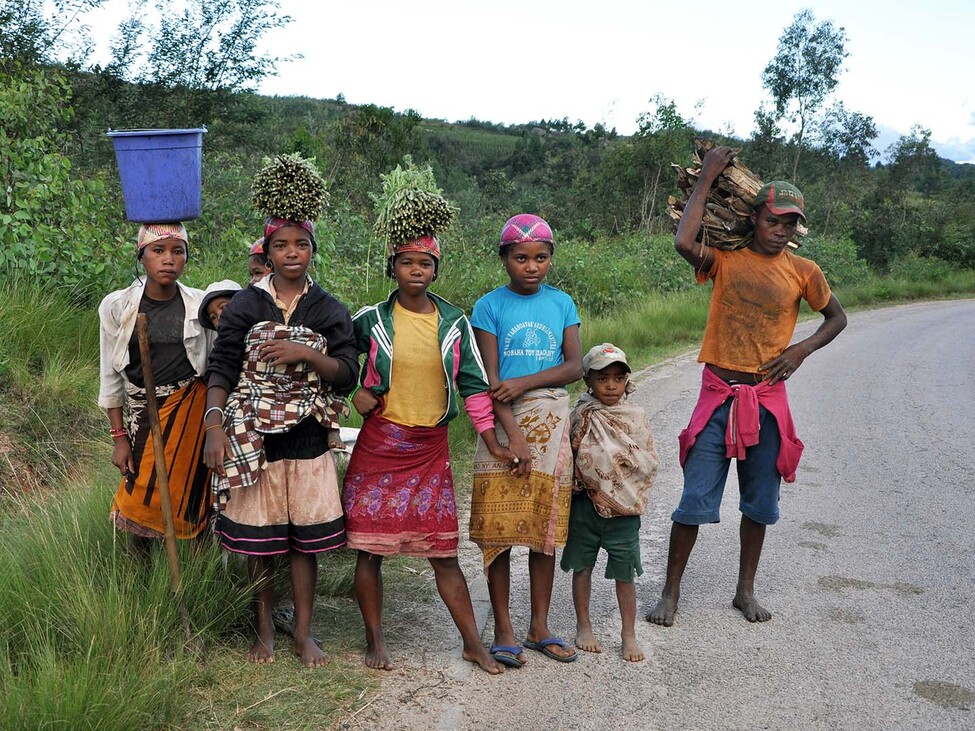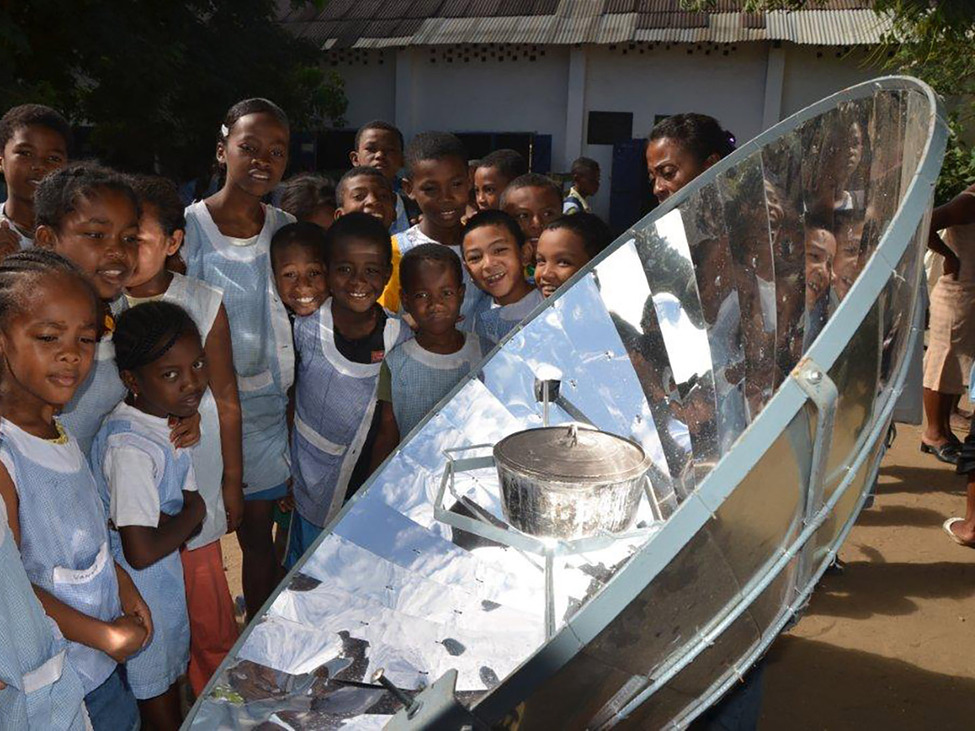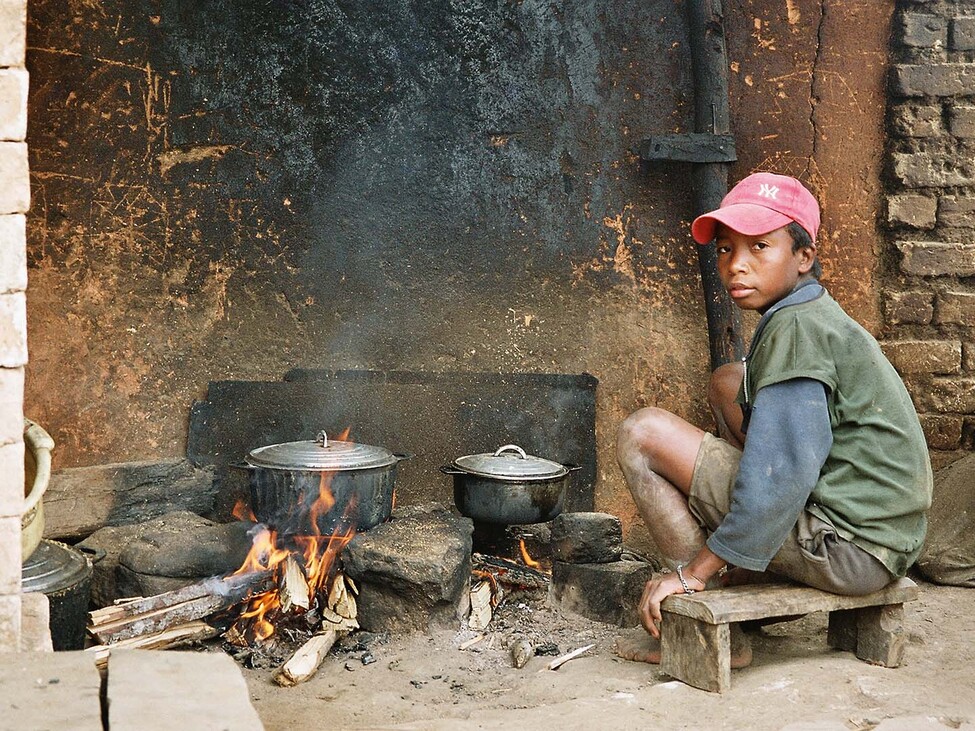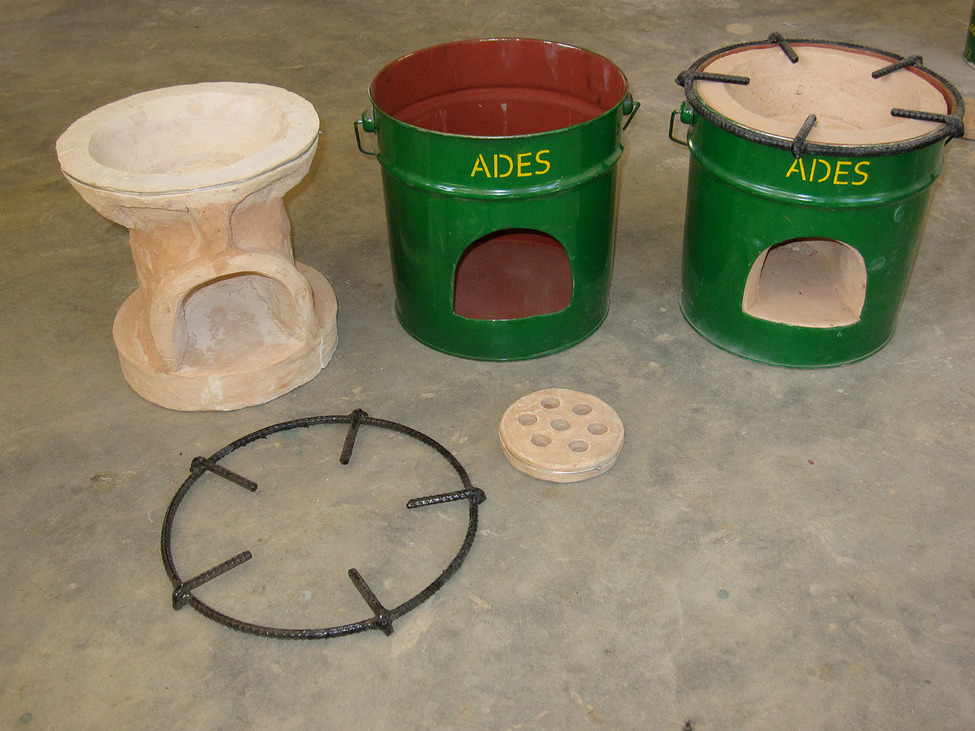Project facts
Project type: Energy efficiency, renewable energy
Project location: Madagascar
Project standard: Gold Standard VER
Annual emission reduction: 469.066 t
Project start: January 2008
In order to reduce CO₂ and counter the rapid deforestation on Madagascar, myclimate supports the manufacture and distribution of efficient cookers and climate-friendly solar cookers. The sensibilisation of pupils about environmental protection and climate friendly cooking as well as the reforestation of two seedlings per cook stove sold are part of that project.
